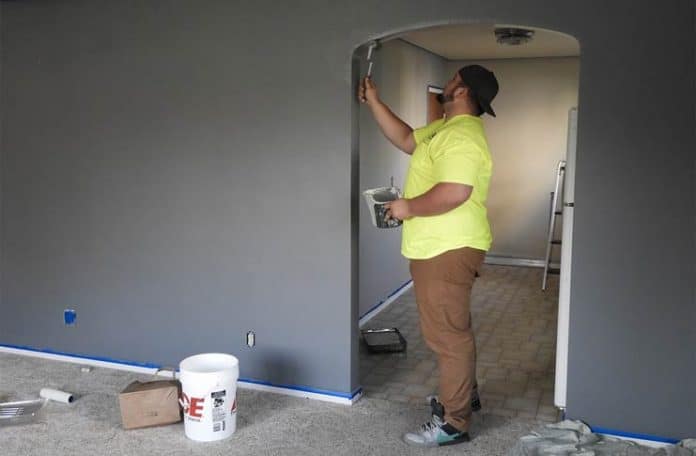
Taking the leap into becoming a small business owner takes guts. It also takes the ability to know how and where you can save money and discovering ways to offer your clients value.
While you may know how to join a perfectly square corner, do you know how to add value to your service to keep your clients coming back? And are you quoting your jobs so that your business is profitable and you’re able to make a living wage when you’re starting out? You have to consider these questions as a business owner.
Luckily we have some tips to help you increase your ability to please customers and cut some costs you may have overlooked. Add some of these to your day-to-day practices to set yourself and your Home Improvement business up for success.
1. Know Your Home Renovation Business Budget and Stick to It
You may know down-to-the-penny how much a renovation project will cost. You’ve calculated the labor, supplies, and budgeted for any extra incidentals that may appear, but have you considered everything?
Find those hidden costs that add up and cut into your profit margins. Some of these include vehicle insurance, fuel, safety equipment, lunch or doughnuts for the crew, taxes, payroll, rental space for equipment, marketing, upkeep on your equipment, and your salary.
Research and learn as much as you can about costs and how to run your business on a budget. Learn from other mistakes and listen to the professionals that have been in business since before you were born.
2. Know Where to Cut Costs and Spend Wisely
While you never want to advertise your services as “cheap,” you should be aware of areas where you can cut your costs and offer your clients savings. Most homeowners will get multiple quotes. Can your price compete and do you offer varying price points?

Always be honest with how much your customer’s dollar will get them. If they have granite taste on a laminate budget, make them feel comfortable getting the affordable option. You can even offer to install granite in the future when their budget allows.
You can always offer creative solutions to budget issues, too. Research your area and find where larger contractors or construction companies donate their excess materials. There are great secondhand and vintage options, too, like Habitat for Humanity ReStore.
3. Plan Ahead for Slow Times in the Home Improvement Sector
While most businesses can predict when their sales will drop, a Home Renovation Business often relies on the real estate market and the health of the economy to predict sales. Living in a seasonal area can also be a factor when it comes to how busy summer will be compared to winter.
One measure you must take to figure out how the year will unfold is to keep track of sales then analyze the numbers. This is something you can do on your own using Excel. You can also hire an accountant to help once you’re landing regular jobs.
After you figure out the slow season for your business, use it to your advantage by booking clients that are willing to wait for a slightly reduced price. This will help you pay payroll when business slows, provide you with steady work, and keep your customers satisfied.
4. Rent, Don’t Own in the Beginning
This advice may seem contrary to what you’ve heard before, but the reality is that business trends dictate change. You may not want to invest in certain equipment if you may not need it in the long run or if the capital could be better used for another part of your business.
In addition to heavy equipment rentals, you can find affordable work truck rentals with variable terms (for U.S-based readers). Here’s a great article showcasing some of the popular Truck renting apps in the Philippines. This can save you the upfront cost of a truck while saving you on insurance month-to-month.
Smaller equipment like tile saws, generators, and ladders are also available to rent. And when it comes time to buy, you can always shop secondhand.
5. Offer Customer Service You Would Want
Clients choose to go with small businesses because of the reliable, tailored customer service you can offer. Never forget this. As a business owner, you have to remember that this is one of your best selling points.

Find where the bigger companies lack and specialize in making your customer’s experience better than what others can offer. Some ideas include:
-
- Give the client a timeline you can stick to. Clients want their renovation completed quick, and they need to feel they can trust you. One of the easiest ways you can do this is by giving them an accurate timeline and exceeding their expectations. Anticipate setbacks and include those in your estimate.
-
- Offer unique ways for your customer to save money. One way you can do this is by reusing your customers existing cabinetry, baseboards, appliances, and fixtures. This not only reduces waste overall, but you can add to the cost of labor while reducing the customer’s overall cost.
-
- Know the resale market and offer insight to increase a home’s value. One of the first questions you should always ask a client is “why” they are completing a renovation. If they want to sell their house, give them advice on what sells and what doesn’t.
When you’re first starting a business, it’s essential that you cut costs where you can while providing your customers with the best products and services. Don’t hesitate to analyze your numbers to ensure that you are able to keep your business thriving.
By setting yourself apart from other renovation businesses, you’ll win the trust of your clients and be sure to establish repeat clients and increase business through word of mouth.
Want to read more of our tips? Check out these tips for starting a furniture business.




